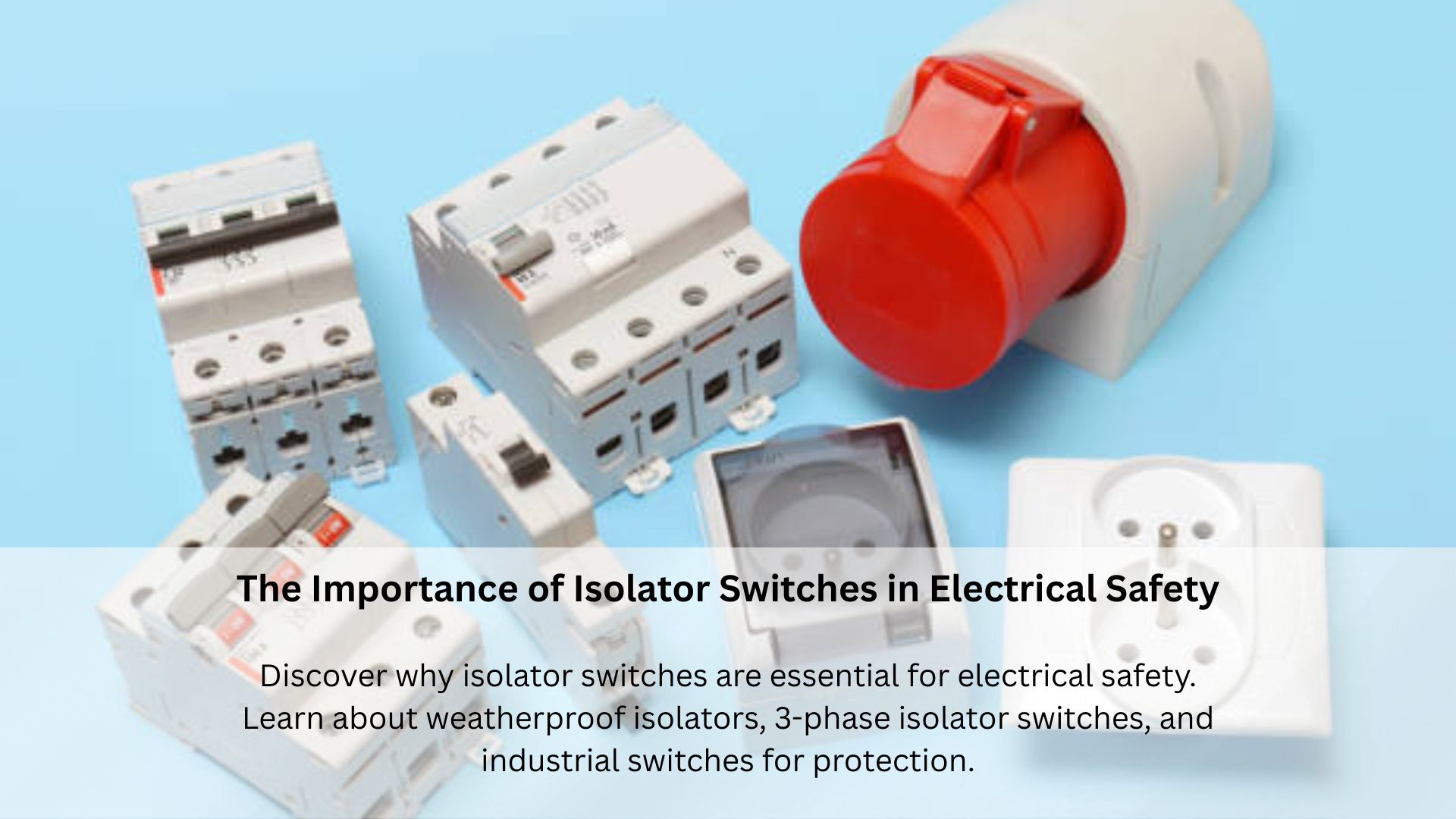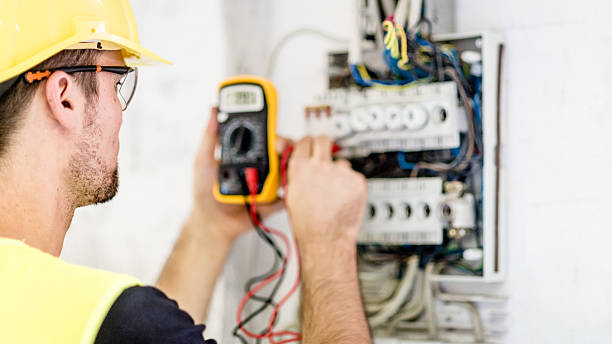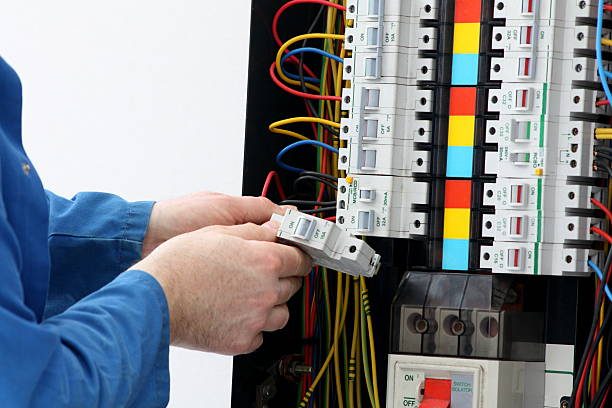
In any electrical system, safety is paramount. Whether in industrial, commercial, or residential settings, protecting people and equipment from electrical hazards is a priority. One essential component that ensures safety is the isolator switch. These switches play a crucial role in de-energizing electrical circuits, protecting maintenance, repairs, and emergencies.
Understanding Isolator Switches
An isolator switch is a mechanical switch that completely disconnects a circuit from the power supply. It ensures that no electrical energy remains in the system, allowing technicians to work safely without the risk of electrocution. Unlike regular switches that merely turn electrical devices on and off, isolator switches serve as a safeguard against electrical faults and short circuits.
These switches are widely used in various electrical applications, including power distribution systems, industrial machinery, and renewable energy installations such as solar panels and wind turbines.
Why Are Isolator Switches Important for Electrical Safety?

1. Ensuring Safe Maintenance and Repairs
One of the primary functions of an isolator switch is to cut off electrical power to a specific section of a circuit, allowing safe maintenance work. Without proper isolation, electricians and technicians face severe risks of electric shocks or accidents.
For example, in industrial plants, complex machinery requires routine servicing. Using a 3-phase isolator switch, engineers can safely disconnect power from the equipment without shutting down the entire facility.
2. Preventing Electrical Hazards
Electrical faults, such as short circuits and power surges, can cause fires and damage equipment. An industrial switch with an isolation function helps prevent such hazards by instantly cutting off power supply in case of emergencies.
In outdoor settings, a weatherproof isolator is essential to ensure safety even in harsh weather conditions. These specially designed switches are resistant to moisture, dust, and extreme temperatures, making them ideal for outdoor electrical installations.
3. Compliance with Electrical Regulations
Electrical safety regulations worldwide mandate the use of isolator switches in critical electrical installations. These regulations ensure that all electrical systems have adequate protection mechanisms in place to prevent accidents and equipment failures.
Industrial setups, commercial buildings, and even residential properties are required to install appropriate isolator switches to comply with safety norms. This not only protects human lives but also ensures the longevity of electrical appliances and systems.
Types of Isolator Switches and Their Applications
1. Single-Pole and Double-Pole Isolators
These isolators are commonly used in residential and small commercial applications. A single-pole isolator disconnects only the live wire, while a double-pole isolator disconnects both live and neutral wires, ensuring complete isolation.
2. 3-Phase Isolator Switch
A 3-phase isolator switch is widely used in industrial and commercial buildings where three-phase electrical power is used. It ensures safe isolation of high-voltage systems, protecting both personnel and equipment.
3. Weatherproof Isolator
A weatherproof isolator is designed for outdoor installations, ensuring protection against rain, dust, and extreme weather conditions. These switches are ideal for external air conditioning units, solar panels, and industrial machinery placed in open environments.
4. Industrial Switches
Heavy-duty industrial switches are used in factories, plants, and high-power electrical setups. They can handle high voltage and current loads, ensuring efficient power control and safe isolation during maintenance or emergencies.
Choosing the Right Isolator Switch

When selecting an isolator switch, several factors must be considered:
- Voltage and Current Rating: Choose a switch that matches the electrical load requirements.
- Application Type: Industrial, commercial, or residential usage determines the type of isolator switch needed.
- Weather Resistance: If installed outdoors, a weatherproof isolator is necessary.
- Compliance with Safety Standards: Ensure the switch meets national and international safety regulations.
Conclusion
An isolator switch is a fundamental component of electrical safety, preventing hazards, ensuring compliance with regulations, and enabling safe maintenance of electrical systems. Whether you need a weatherproof isolator for outdoor use, a 3-phase isolator switch for industrial applications, or robust industrial switches for heavy-duty operations, selecting the right isolator is crucial.
Investing in high-quality isolator switches enhances the overall safety and efficiency of electrical systems, safeguarding both people and equipment. Make electrical safety a priority by ensuring proper isolation in all installations. Read our other blogs on save energy money with light dimmers.